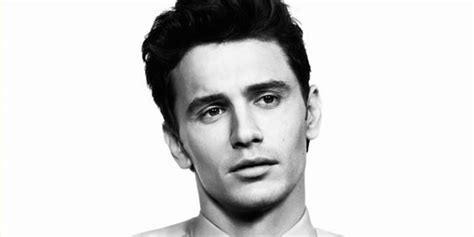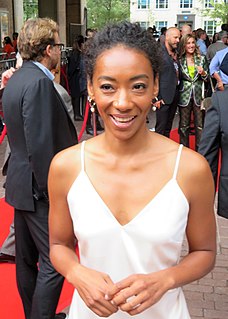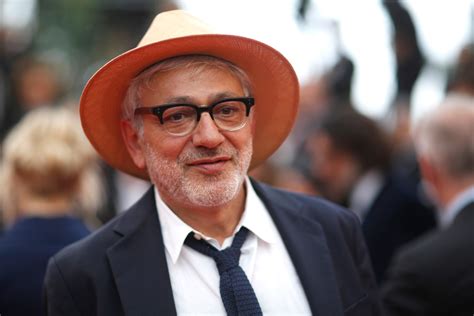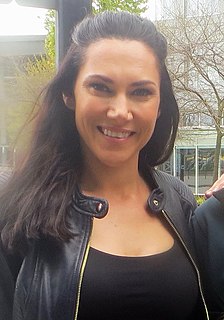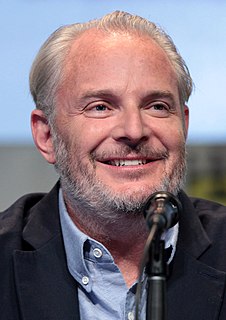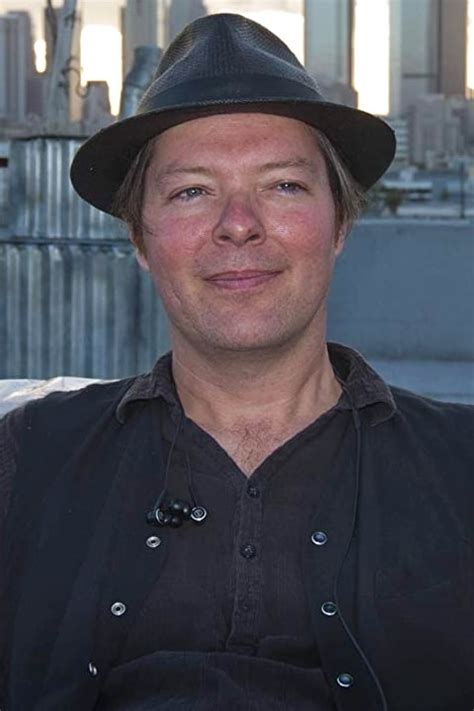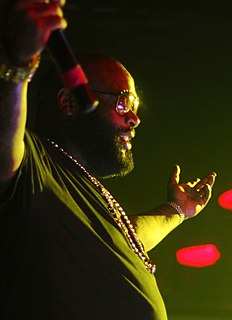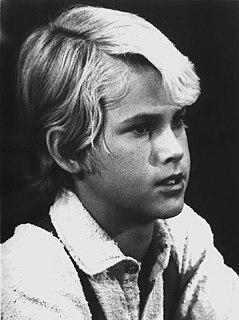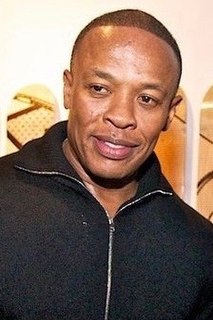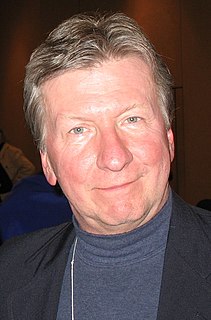Top 388 Thriller Quotes & Sayings - Page 7
Explore popular Thriller quotes.
Last updated on April 15, 2025.
Henri-Georges Clouzot's cool, clammy, twisty 1955 thriller Diabolique is an almost perfect movie about a very nearly perfect murder, a film in which the artist's methods and the killers' are ideally matched, equal in cunning and in ruthlessness. The screenplay, adapted by Clouzot and three other writers from a novel by the crack French crime-fiction team of Pierre Boileau and Thomas Narcejac, is a fantastically elaborate piece of contrivance, but the scrupulous realism of the direction makes the unnatural tale somehow feel entirely likely.
I didn't think that and I didn't verbalize that to myself or within meetings that we ever had, but we wanted to make a hard-nosed, gritty, realistic spy thriller. Roger talked about using lenses. He shot hi-def, but using anamorphic lenses that he'd found from this warehouse. He was so thrilled with that. Him and Romain [Lacourbas] were just like kids in a toy store with their lenses.
I find the horror genre quite challenging. That's not to say everything I've done has been straight horror - a lot of them have been more on the thriller side. But regardless, I find it the most challenging as an actor to create sheer anxiety and terror out of nowhere because there's nothing scary going on and you have to act like it is.
I think everyone should read The Girl on The Train, especially if they loved Gone Girl. It's about Rachel, a girl who sees a couple on her commute. Then one day she sees one of the people from the couple kiss another person. The next day they go missing. The story is told by 3 different perspectives, all characters you absolutely can't trust. It's an insane psychological thriller that's seriously addicting and the kind of book you can't put down.
The desire to express in an art form and to compose a tableau and vignette whether it's humorous, burlesque, or poetic comes simply from a desire to compose an image for cinema. It is not my fault that when I go to Ramallah there is a checkpoint and therefore it enters my film. Tell me a way to avoid that politicized image. The fact is that the police are everywhere, the army everywhere and occupation is total. Whether it's a love story or a thriller, you place the camera and these realities will cross the frame.
The definition of horror is pretty broad. What causes us "horror" is actually a many splendored thing (laughs). It can be hard to make horror accessible, and that's what I think Silence of the Lambs did so brilliantly - it was an accessible horror story, the villain was a monster, and the protagonist was pure of heart and upstanding so it had all of these great iconographic elements of classic storytelling. It was perceived less as a horror movie than an effective thriller, but make no mistake, it was a horror movie and was sort of sneaky that way.
I love the psychological thriller piece of it. Because we are trapped in this isolated environment with a deadly virus, what's really interesting is that everyone's darkness comes out because we've got these life-and-death stakes going on. And then, there're these interesting relationships going on, but we can't quite deal with the relationship right now because we've got something better to do, which is survive.
If I can do anything in this time of my career, I want to make it easier for other actresses and girls who are growing up to go, 'I get to be a part of a comedy or an action film or a romantic comedy or a thriller or just a romance, without having to wind up with someone to complete us.' I complete me. I just got lucky that, after I completed myself, I met someone who could tolerate me.
In almost every thriller, a point is reached when someone, usually calling from a phone booth, telephones with a vital piece of information, which he cannot divulge by phone. By the time the hero arrives at the place where they had arranged to meet, the caller is dead, or too near death to tell. There is never an explanation for the reluctance of the caller to impart his message in the first place.
I'm not 100% sure 'Rebecca' qualifies as a thriller, given it's three parts screwed-up love story and two parts ghost-story-without-a-ghost, but the mystery at the heart of the novel is what happened to Maxim's first wife, the eponymous Rebecca, and it's unravelled with the pacing and finesse of the finest psychological thrillers out there.
'Hereditary' is unabashedly a horror film, whereas 'It Comes at Night' was a lot of things: it was a thriller; it was a postapocalyptic drama. It was a slow-building, very dark movie about relationships. 'Hereditary' is also about relationships, and I hope it functions as a vivid family drama, but it is also very much a horror film.
What I love about the thriller form is that it makes you write a story. You can't get lost in your own genius, which is a dangerous place for writers. You don't want to ever get complacent. If a book starts going too well, I usually know there's a problem. I need to struggle. I need that self-doubt. I need to think it's not the best thing ever.
About my work, my first film, Écoute le Temps (Fissures), was positioned by distributors as a thriller because they thought that it would sell more easily. But it was surely a mistake, as that kind of viewer did not take the bait, and it drew away its potential core audience, those whom I met in festivals and in various Q&As who seem to appreciate that particular kind of cross-over arthouse film.
I never... it's a hard thing: when I think about projects, I don't come off something and go, 'I really want to make a sci-fi film next,' or 'I really want to do a political thriller next.' It's really coming across - I'm really fascinated, partly by world building, but also about the character and what the journey is.
I've been very lucky at what's happened in my career to date, but playing something as far from me as possible is an ambition of mine - anything from a mutated baddy in a comic book action thriller, to a detective. If anything, I'd like Gary Oldman's career: he's the perfect example of it. I've love to have a really broad sweep of characters - to be able to do something edgy, surprising and unfashionable.
Sierra felt full of hope and confidence in God. She knew who she was. And she knew Whose she was. Whatever mysterious plan God had for her life, it would be an interesting one. As Christy had said earlier, God writes a different story for each person. Sierra decided hers might not be a bestseller or even a thriller. It certainly wasn't a romance. But it was turning into a fine mystery. And she could live with that.
Yes, to me that's one of the most compelling fears in film noir and the psychological thriller genre - that fear of conspiracy. It's definitely something that I have a fear of - not being in control of your own life. I think that's something people can relate to, and those genres are most successful when they derive the material from genuine fears that people have.
A lot of my books have been that way. My World War II thriller about Sarin gas [Black Cross] was published two months before the Sarin attack in the Japanese subway. There are very weird coincidences out there. And I do have one surefire plot I have not and probably never will write, because of my fear someone will carry it out.
The incident itself happened in London, but because we were all based at the time in Los Angeles we moved it there. Certain details are almost exactly like the true experience, but we decided to make the film more of a thriller, in the hope that it would reach a bigger audience. That's why it's called "Selling Isobel" and not "Selling Frida." We didn't want to make a dark, depressing "movie-of-the-week."
It's absolutely fun to walk around and have people respect you. When Michael Jackson did Thriller, I was in the park one day, and a girl came up to me and said, "Man, the only people they talk about around here are Michael Jackson and you." It was pretty flattering to be considered in the same light as the king of pop in my area.
Usually it's just material that resonates with me and I never know exactly what that's gonna be. And there's obviously a certain persuasion, if you will. It's dependent upon the fact that I'm known for certain genres. So, that influences my decision making as well. I mean I'd love to, for example, do an action thriller but there are a lot of very talented people doing that and so it would be very difficult for me to switch over to that genre. So, I do look for things that I know (will resonate with) my audience.
When I think of the future, I think a lot of Quincy Jones and how he is an inspiration. Look at the quality of his work over so many years. He didn't even make his best record, 'Thriller,' until he was 50. That gives me something to look forward to. Nothing pulls you back into the studio more than the belief that your best record is still ahead.
Critics have found in the narrative a veneer of erudition that cloaks nothing more than a James Bond-style romp, albeit a highly addictive one. His publisher has described it as 'a thriller for people who don't like thrillers'. One newspaper put it thus: 'It is terribly written, its characters are cardboard cutouts, the dialogue is excruciating in places and, a bit like a computer manual, everything is overstated and repeated - but it is impossible to put the bloody thing down.
I had an idea for a medical conspiracy thriller. Since it was non-horror, I didn't want the publishers and editors bringing a lot of baggage - my history as a genre writer in the SF and horror fields, for instance - to the novel when they read it. I wanted them to consider the book solely on its own merits. So I called myself Colin Andrews. I was tired of seeing my books at floor level. Not that Herman Wouk and Phyllis Whitney and William Wharton are bad company, but I wanted to be up at eye level for a change, where people with bad backs could get a chance to see my books.
Sometimes it feels as if the artist hasn't done the real work of engaging with the material. Film noir can't just play off looks and attitudes. A thriller needs a dose of genuine suspense. It does not have to be literal, but it does have to feel genuine. Otherwise the artist is just leeching off the form.
I try to write about complex issues--young people in an adult world-- full of irony and contradiction in a narrative style that relies heavily on suspense with a texture rich in emotion and imagery. I take a great deal of satisfaction in using popular forms-- the adventure, the mystery, the thriller-- so as to hold my reader with the sheer pleasure of a good story. At the same time I try to resolve my books with an ambiguity that compels engagement. In short, I want my readers to feel, to think, sometimes to laugh. But most of all I want them to enjoy a good read.
